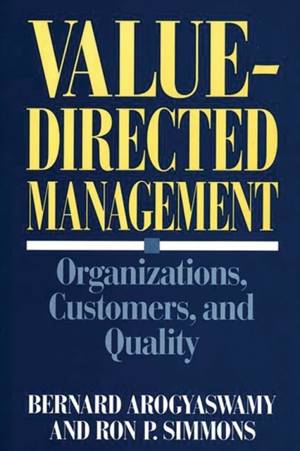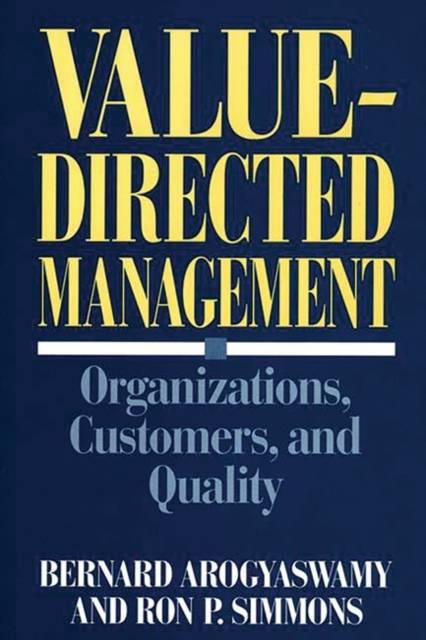
- Retrait gratuit dans votre magasin Club
- 7.000.000 titres dans notre catalogue
- Payer en toute sécurité
- Toujours un magasin près de chez vous
- Retrait gratuit dans votre magasin Club
- 7.000.0000 titres dans notre catalogue
- Payer en toute sécurité
- Toujours un magasin près de chez vous
Value-Directed Management
Organizations, Customers, and Quality
Quorum, Ron Simmons, Bernard Arogyaswamy
Livre relié | Anglais
161,45 €
+ 322 points
Description
Arogyaswamy and Simmons combine the technique of value analysis and the concept of the value chain to build a perspective on value that is at once comprehensive and practical. They provide a methodology for formulating value-based strategy as well as a system for managing the value-directed organization. The management system proposed is based upon the high value Just-in-Time (JIT) and Total Quality Control (TQC) principles successfully deployed by numerous Japanese (and more recently American) firms. In a sense, this book brings together the American and Japanese streams of value creation.
Essentially, the authors argue that accepting, and indeed increasing, interdependencies within activities (design, operations, marketing) is imperative in order not only to create value but also to build the value-creating organization. Effective integration among activities is the second key ingredient, while involvement by deemphasizing power-based relationships--by providing knowledge and information, as well as the opportunity and the desire to use both--is the third requirement, and one that makes the process of value creation self-sustaining. The authors discuss the cultural traits most conducive to value enhancement and specifically tackle the ingraining process. The measurement of improvements both in value-as received and in the process of value delivery itself is extensively discussed. Numerous practical value indicators to assess progress in value creation are proposed. Being a judicious how-to, why-to amalgam, the book will appeal equally to executives and managers seeking to install value as a guide to action, as well as to graduate and advance undergraduate students seeking the rationale underlying value management.Spécifications
Parties prenantes
- Auteur(s) :
- Editeur:
Contenu
- Nombre de pages :
- 248
- Langue:
- Anglais
Caractéristiques
- EAN:
- 9780899307978
- Date de parution :
- 30-01-93
- Format:
- Livre relié
- Format numérique:
- Genaaid
- Dimensions :
- 156 mm x 247 mm
- Poids :
- 589 g

Les avis
Nous publions uniquement les avis qui respectent les conditions requises. Consultez nos conditions pour les avis.






